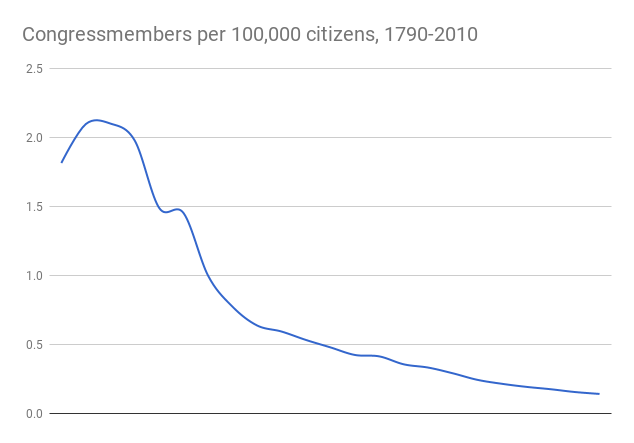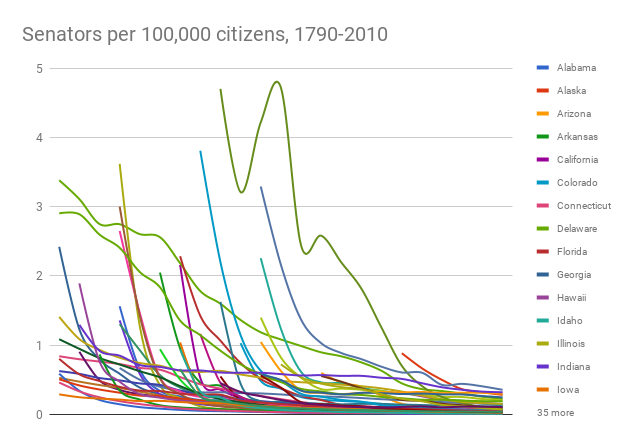Homeopathic democracy
Before George Washington became the first chief executive under the U.S. Constitution, he presided over the Philadelphia Convention at which the Constitution was drafted. Throughout the entire proceedings — which had its fair share of passionate disputes — Washington spoke up exactly once on an issue under debate. The proposed size of the U.S. House of Representatives was too small, he said. It would have meant one congressman for every 40,000 citizens. He insisted that one per 30,000 would produce a better, more responsive democracy, and so the change was made.
Within thirty years, as new states were admitted and the population grew, the ratio reached the level against which Washington had argued: 40,000 citizens per congressman. Four decades later and it more than tripled: 127,000 to 1. By this time the population of the country had grown from under two million to over 31 million, and the House of Representatives had gone from a cozy 65 members to a rowdy 241.
In 1912 the House of Representatives swelled to 435 members — roughly one for every 212,000 citizens — and there it was capped by legislation in 1929, by which time the ratio was more than 280,000 to 1.
If we had maintained that ratio, today the House would have 1,093 members. If we had maintained Washington’s ratio, today it would have 10,291 members. As it is we’re stuck with 435 — fewer than one congressperson for every 700,000 people, less than one-twentieth what Washington wanted. Some U.S. citizens have proportionally more Senate representation than House representation.


What was the cry of the Boston rioters in 1773? “No taxation without representation.” What would they have said about taxation with just a teensy amount of representation? No wonder our democracy presently works about as well as a course of Oscillococcinum (the flu remedy so dilute that one dose contains none of its so-called active ingredients).
If our tiny legislature were more responsive to its vast constituency, we would have universal background checks for firearm purchases, solid protections for Dreamers, and federal laws against civil asset forfeiture (the polite term for police theft) — all topics on which Americans agree almost unanimously.
Would a Congressmember for every 30,000 Americans be more responsive than what we have now? Would a ten-thousand member Congress be unmanageable? One thing is clear: our democracy needs fixing. The will of the people is not being represented.
[An earlier version of this essay appeared on a blog in 2011.]
